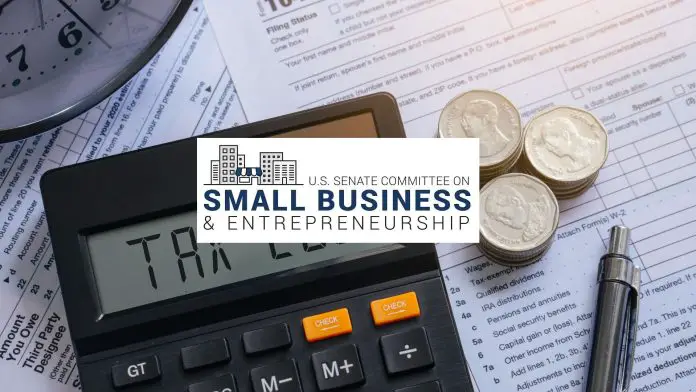In a recent joint hearing of the House and Senate Committees on Small Business, Chair Joni Ernst (R-Iowa) emphasized the critical need for Congress to make the Trump-era tax cuts permanent. This move, she argues, would not only sustain the tax relief that has propelled American small businesses over the past few years but also fend off what could be the largest tax increase in the nation’s history.
Ernst explained that the Tax Cuts and Jobs Act of 2017 (TCJA) simplified the tax code and significantly reduced personal income taxes while expanding crucial deductions for small businesses. The act has been credited with driving robust growth during its implementation, contributing to low unemployment rates and encouraging small businesses to invest in themselves and their employees.
“Eight years ago, working alongside President Trump, Congress passed the most significant simplification of our tax code in decades,” Ernst stated. She noted that the TCJA’s measures allowed small businesses to thrive, leading to real wage growth and a thriving economy, with annual GDP growth rates reaching as high as 3%.
For small business owners, the implications of the TCJA are significant. Currently, over 96% of small businesses operate as pass-through entities, directly benefiting from the qualified business income deduction and reduced personal income tax rates. If these provisions were to expire, Ernst predicts dire consequences for small entrepreneurs and their employees.
“Small business owners will be hit particularly hard if the TCJA expires,” she warned. “More importantly, the TCJA enabled small businesses to invest more in their employees.” Ernst recounted stories from business owners in Iowa who have utilized the financial leeway afforded by the tax cuts to provide vital employee benefits, including health insurance and retirement plans. Many have used the savings to hire additional staff, a decisive factor for those contemplating difficult staffing decisions if the tax relief were revoked.
Moreover, Ernst highlighted the concern many workers have expressed. With the potential for increased corporate taxes, small businesses may have to offset higher costs by cutting jobs and reducing employee benefits, further complicating an already challenging economic landscape.
One particularly important aspect of the TCJA for rural businesses is its reduction of the death tax. This provision has been crucial for many families wishing to keep their businesses, such as family farms, intact after the loss of a loved one. For states like Iowa, where agriculture plays a vital role in the economy, the ability to pass down these businesses without facing substantial tax burdens is essential.
While small business owners have largely benefited from the TCJA, Ernst underscored the need for Congress to ensure these provisions are not merely temporary. She stated, “If we let the TCJA expire now, Americans and small business owners will be forced to shoulder another $4 trillion dollars in new taxes.”
The urgency of making the tax cuts permanent resonates deeply with small business communities, many of which continue to navigate the aftereffects of the pandemic and rising operational costs. As Ernst remarked, “When small businesses grow, the American economy grows.” This statement encapsulates the broader economic philosophy that empowering small businesses directly correlates to a resilient and thriving economy.
As small business owners consider the future, they should remain vigilant about potential changes to tax legislation. The ongoing discourse in Washington highlights the importance of advocating for policies that support small business growth and sustainability.
For more detailed insights from the hearing, you can refer to the original press release on Senator Ernst’s website here. In a climate of uncertainty, small business owners are urged to stay informed and engaged with developments that may impact their financial stability and growth prospects.
Image Via Envato: witsaruts



